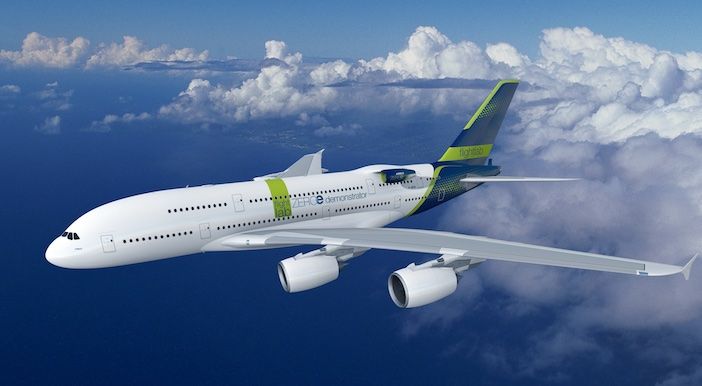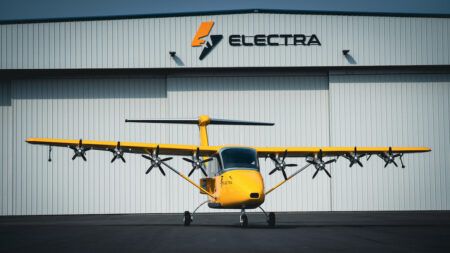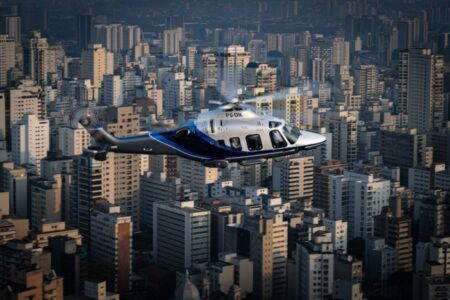Airbus is to flight test a hydrogen combustion engine on an A380 as part of its ZeroE program before the end of this decade.
The European aircraft manufacturer is partnering with aero-engine maker CFM International, the long-established joint venture between GE Aviation and Safran Aircraft Engines to provide the first engine for the program.
CFM is to modify a GE Passport turbofan engine to run off hydrogen, while Airbus is configuring MSN1 A380, the first ever A380 built to carry the engine on a support at the top rear right of its fuselage.
MSN1 was used during the certification and testing program for the A380 and to flight test the Rolls-Royce Trent XWB engines used on the A350.
The conversion of MSN1 A380 into the flying testbed will be complete by the end of 2026. While this is happening CFM will carry out a ground test program. The flight test schedule is still being planned but will happen before 2030.
Sabine Klauke, Airbus’ chief technical officer said, “The aircraft has a testing track record and is already configured as a test aircraft. A stub support will be installed on the exterior for the turbine engine and on the main deck four hydrogen tanks will be installed that are currently being developed in Bremen, Nantes and Madrid.
“Having a four-engined aircraft with the ability to install another engine at the rear is a great opportunity. The asset is a huge one to do all kinds of test flights as well as these engine tests, so it will probably go on to be used afterwards.”
The aircraft will carry 400kg of liquid hydrogen on board and the fuel tanks will be in a hermetically sealed container. After the testing with the Passport engine is completed, other propulsion systems may be tested, including open rotor engines and hydrogen fuel cell systems, added Kaulker.

Hydrogen combustion engine
Engineers at CFM will modify the combustor, fuel system, and control system of the Passport turbofan engine, which is used mainly to power large business jets.
During flight the modified engine will be monitored separately from the other four engines powering the aircraft.
Gael Meheust, president and CEO of CFM International said, “We want to bring to the market breakthrough technologies that will develop the industry, while helping to protect the planet. Any engine we produce in the future will be compatible with alternative fuels such as SAF. But the goal of the industry is zero emission, and hydrogen propulsion is the true zero carbon solution.”
Mohamed Ali, vice president and general manager of GE Aviation said, “This is a big step forward towards a more sustainable aviation industry. Hydrogen is exciting and challenging, but we have more than 800 million hours of hydrogen combustion experience with land based combustion.”
There are several key engineering challenges to solve with the propulsion system, including the development of a new cryogenic fuel delivery system, including a new cryogenic fuel pump, piping and seals.
The liquid hydrogen must converted into gas from its -205˚C temperature before it is burnt in the engine, which means a new heat exchanger must be developed. Hydrogen burns at a higher temperature and ten times faster than jet fuel, which means the use of high temperature materials inside the engine and new ways to control the combustion must be developed
“We will achieve the same or better durability to the engines today,” said Ali. “Our next steps is to modify an existing GE Passport engine, fuel delivery system, combustor and control system.”
As well as the performance of the direct hydrogen combustion system, fuel delivery system and storage tanks, the test program will gather data about the contrails produce by the hydrogen engine in different atmospheric conditions. A hydrogen engine is predicted to release three times as much water into the atmosphere, which some researchers believe could increase the greenhouse gas effect.
Airbus has committed to introducing a zero emission aircraft by 2035 under its ZeroE program, which it launched 18 months ago.
Klauke said, “The overall configuration of the aircraft will be decided at the end of the decade when the technology bricks have been decided and we examine the market. We have four configurations we are looking at in depth, but they are linked to the technology choices.”




